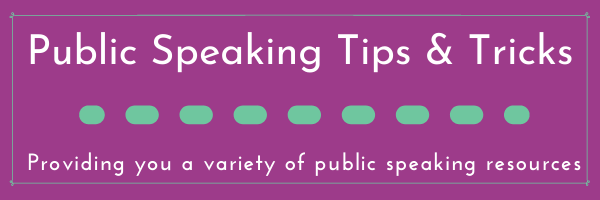In his 2018 textbook “Speech Craft,” one topic Joshua Gunn covers in Chapter 4 (p. 77-79) is “Developing a Dynamite Topic.” Gunn outlines three areas of consideration a speaker needs to take into account when developing their speech topic and what question you can ask yourself to make these considerations: 1) Consider the Speech Situation, or “What is the speaking situation?”; 2) Consider your Own Interests, or “What topics will be interesting and relevant to me?”; and 3) Consider your Audience, or “What topics will be interesting and relevant to my audience?”. Let’s briefly break these three considerations down.
First, when considering the speech situation, remember that “speech situation” is defined as “refer[ing] to both the exigency or reason for giving the speech as well as those things that constrain what can be said.” Furthermore, “The primary characteristic of the speech situation is the reason and purpose of a speech. Secondary elements include the space and place of a speech, as well as characteristics of the audience.” Gunn points out that this consideration is the most important out of the three, and there is certainly truth in that, especially when it directly ties in the other two considerations.
Secondly, when considering your own interests during the process of developing your speech topic, it is important to remember that “[w]hen you pick a speech topic, you should have a strong feeling about it—whether positive or negative” because “[i]f you’re a beginning speaker, you may be surprised to learn that audiences are often more interested in speeches when the speaker seems genuinely jazzed about the topic.”
And lastly, when considering your audience, there are several things to keep in mind that build off the first two considerations. Remind yourself of the speech situation, or what space and place your speech will be given. Are you presenting in a class? Your workplace? A public event? Wherever the space and place your speech will be given, this will directly influence the type of audience hearing your speech and therefore needs to be a crucial, guiding factor in selecting a speech topic. Keep in mind that you may not know every single possible detail about individuals in your audience or even your audience as a whole, but the setting typically gives plenty of contextual clues, such as if you are speaking at a specific event, in a particular classroom setting, and so on.
While these are only the beginning steps in working towards selecting a speech topic, they are highly important in order to have the best impact on your audience as you can with your speech! It all begins with choosing a topic…a “dynamite” one at that!
Gunn, Joshua. “Developing a Dynamite Topic (Choosing a Speech Topic and Purpose).” In Speech Craft, 77–79. Boston, MA: Bedford/St. Martin’s, 2020.
